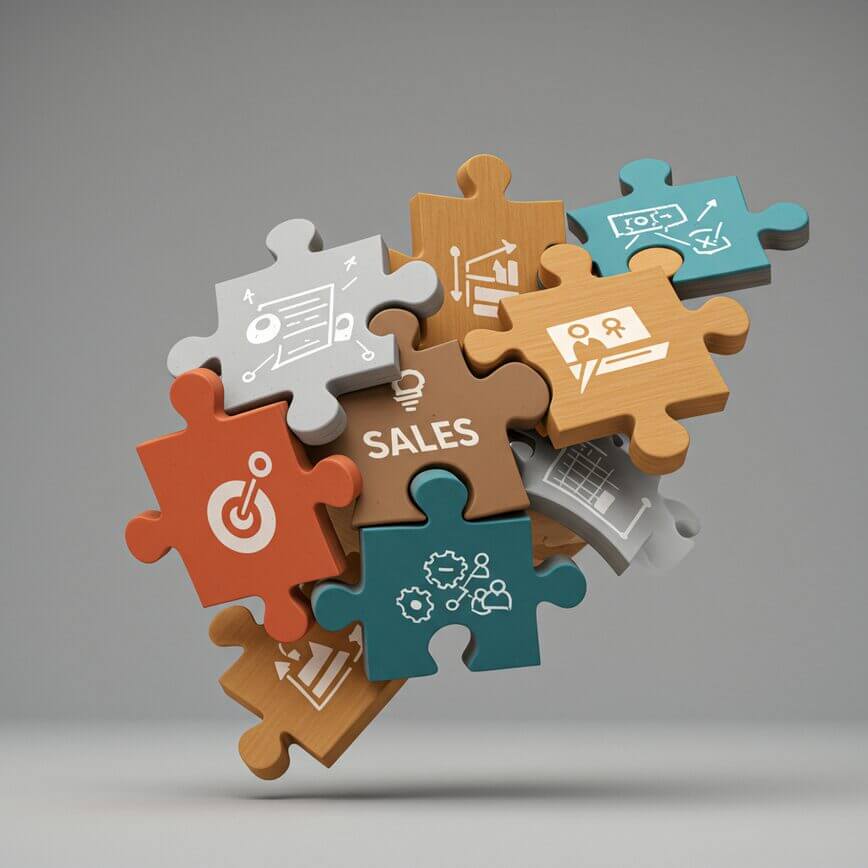As a small business owner, you’re wearing multiple hats—CEO, marketer, salesperson, and administrator. It’s a constant juggle of tasks, from sending invoices and following up on leads to managing your calendar and updating your social media. Studies show that up to 30% of a typical workweek can be lost to these manual administrative tasks. If you’re wondering what is the best AI for small business operations, you’re asking the right question at the right time. The promise of AI is to reclaim that lost time, automate the repetitive work that drains your energy, and ultimately help you compete with larger companies on a more level playing field.
Table of Contents
But the market is flooded with options, each claiming to be the ultimate solution. This creates a paradox of choice that can be paralyzing for busy entrepreneurs. The real challenge isn’t finding an AI tool; it’s finding the right one that simplifies your life instead of adding another layer of complexity, another monthly bill, and another password to remember. This guide will cut through the noise, evaluate the top AI for business, and reveal why the best solution might not be what you think.
Why “Best” Isn’t About a Single Tool, But a Unified System

The initial instinct for many entrepreneurs is to find a “best-in-class” AI for each individual task. You might find one tool for writing social media posts, another for scheduling appointments, and a third for tracking customer interactions. On the surface, this approach seems logical—get the best tool for each job.
The problem? You’ve just traded one kind of chaos for another. This is often called the “Frankenstein” system, where you’ve stitched together various parts that don’t naturally work together.
Now you have multiple subscriptions to manage, different interfaces to learn, and—most critically—data that doesn’t talk to each other. A lead from your AI scheduler doesn’t automatically appear in your sales pipeline or get added to your email marketing list. A customer query from your AI chatbot gets lost in a separate inbox instead of being logged in their central contact profile. This system chaos is a time-waster, creating manual data entry work and increasing the risk of human error. It’s the exact opposite of what AI is supposed to deliver.
The best ai software for small business isn’t a patchwork of disconnected apps. It’s a single, integrated platform where AI automates your core business functions from one central dashboard. This isn’t just a software choice; it’s a strategic decision to build a reliable operational backbone for your entire business.
Evaluating the Best AI Tools for Small Business in 2025
To understand the value of an all-in-one system, let’s break down the common categories of AI tools and see how they stack up against an integrated approach. We’ll look at their strengths and, more importantly, their limitations when used in isolation.
For Content Creation & Marketing
Tools like Jasper or Copy.ai use generative AI to help you write blog posts, emails, and social media updates. They are excellent for overcoming writer’s block and producing content at scale, helping you maintain a consistent online presence.
- Strength: Speeds up content production significantly, allowing you to create marketing materials in minutes instead of hours.
- Limitation: They are standalone products. They can generate text, but they can’t schedule your posts, track which lead opened your email, or manage your client relationships. The content it creates lives in a vacuum; it’s a creative tool, not an operational one. You still have to manually move that content into your other systems to make it useful.
For Scheduling & Appointments
AI-powered schedulers like Calendly can intelligently find open slots in your calendar, send automated reminders, and eliminate the frustrating back-and-forth emails of booking meetings.
- Strength: Automates the tedious and time-consuming process of appointment setting, making it effortless for clients to book time with you.
- Limitation: Its job ends once the appointment is booked. It doesn’t nurture the lead before the meeting or track the sales process after. You’re still left to manually create a new contact in your CRM, add notes about the upcoming meeting, and update their status afterward. The AI has solved only a tiny fraction of the overall client journey.
For Customer Support & Chatbots
Platforms like Intercom or Zendesk use AI to power chatbots that can provide instant answers to common customer questions on your website, freeing up your time and delighting customers with immediate responses.
- Strength: Offers 24/7 customer support and dramatically improves response times, which is a key factor in customer satisfaction.
- Limitation: These are often enterprise-level tools with price tags and complexity to match. For a small business, they can be overkill, and they still don’t manage your leads, sales, or marketing from the same place. The chat history is often trapped within the support platform, invisible to your sales or marketing efforts.
The All-in-One Solution: AI-Powered CRMs
This is where the real power lies for a small business. An AI-powered CRM like I Love My CRM doesn’t just perform one function; it unifies them into a cohesive, intelligent system.
- Strength: It combines lead management, automated email and SMS follow-ups, appointment scheduling, and client communication into a single dashboard. The AI works in the background to automate workflows across your entire business, not just one silo. For example, it can automatically follow up with leads who haven’t booked a meeting or send a thank-you note after a call.
- Result: An appointment booked via your calendar automatically updates the lead’s status in your sales pipeline. An incoming message from a new prospect on your website is instantly captured as a lead and enrolled in a welcome sequence. This is how you end system chaos, save time, and ensure you never miss an opportunity because all your data is in one place, working for you.
The Clear Winner: An Integrated AI Platform

While specialized tools have their place, the reality for a small business owner is that time and simplicity are your most valuable assets. The best AI for small business is the one that gives you back both, consistently and reliably.
An integrated platform like I Love My CRM is built from the ground up to solve the core challenges of entrepreneurship.
- End the Juggle: Manage your leads, appointments, and messages from one place. No more switching between browser tabs or trying to remember which app holds which piece of customer data. This gives you a single source of truth for your business, providing clarity and control.
- Automate to Grow: Free up your time by automating follow-ups, reminders, and bookings so you can focus on high-value activities. This isn’t just about saving time on admin; it’s about reallocating your most precious resource—your attention—to serving clients, improving your services, and thinking strategically.
- Look More Professional: A streamlined, automated system makes you appear more organized and reliable to every client. When follow-ups are instant and every interaction is informed by past conversations, clients notice. This level of organization builds trust and positions you as a serious, professional partner.
- Get Real Support: When you have a question, you connect with our team of industry experts who have real experience in small business operations, not just call center agents reading from a script. You’re getting guidance from people who understand your challenges and are invested in your success.
You don’t need five different AI tools with five different bills and five different learning curves. You need one smart, affordable system with transparent pricing and no hidden fees, designed specifically for the needs of a growing business.
How to Get Started with AI Software for Small Business
Ready to make a change? Adopting AI doesn’t have to be complicated. Here’s a simple, four-step plan to follow.
- Identify Your Biggest Time-Wasters: Before you look at any software, look at your own workflow. Is it chasing leads who went cold? Manually scheduling appointments and sending reminders? Trying to keep track of conversations across email, text, and social media? Pinpoint the 1-3 tasks that drain your energy the most. This clarity will be your guide.
- Look for Integration, Not Isolation: With your list of time-wasters, resist the urge to solve each problem with a separate tool. Prioritize an all-in-one platform that handles your core needs: lead capture, communication, and scheduling. Why? Because a single integrated system creates compounding returns on your time. The more you use it, the more it automates, and the more time you save.
- Prioritize Simplicity and Support: The software should be intuitive and easy to use from day one. The best tool is the one you’ll actually use. If the interface is confusing or requires a steep learning curve, it will quickly become another abandoned subscription. Crucially, ensure there is prominent, easy-to-find contact information for a real human support team. Your success should be their goal.
- Take a Test Drive: The best way to know if a tool is right for you is to use it in your actual business. Feeling overwhelmed by the sheer number of tasks on your plate? Learn how to use AI to scale your business when it feels impossible and find a solution that offers a clear, risk-free trial. This allows you to verify its value and see if the workflow fits your needs before you ever pay a dime.
Conclusion: Your Partner in Growth
Answering the question “what is the best AI for small business?” leads to a clear conclusion: it’s not about finding the fanciest algorithm or the most hyped-up new app, but the smartest system. The top AI for your business is the one that consolidates your work, automates your administrative burden, and empowers you to focus on growth, not on managing software.
Stop juggling apps and start streamlining your success. An all-in-one platform is more than just software—it’s a partner dedicated to helping you save time, reduce stress, and build the business you love. It’s an engine that works for you in the background, so you can be fully present in the foreground, where you belong.






